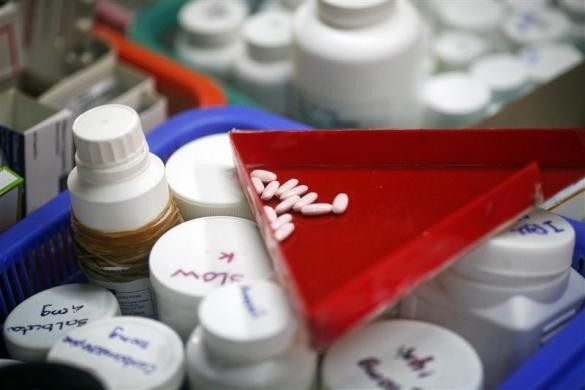
While price rise is affecting Indian citizens in almost every aspect right from food to fuel, there is some good news as more medicines are now set to become affordable.
In order to make more essential drugs cheaper, the Indian government will bring in additional medicines under the ambit of its price control, which could bring down their prices by 10 to 15 percent, Hindustan Times reported.
The decision to add more drugs to the list of essential medicines was taken by a Health Ministry panel, National List of Essential Medicines, on Tuesday in its first meeting, according to Reuters. The panel looks to finalize the revised list of essential medicines within six months, which would then be made public two months later.
The health ministry had taken a similar decision last year as well, when it starkly raised the number of drugs covered under the price cap from 74 to 348, as per the HT report. The move had led to a drop in prices of drugs for treating cancer and infections by almost 80 percent.
While the news of drugs becoming affordable will bring cheer among citizens, pharmaceutical companies are unhappy with the decision as they are already seeing declining profit margins due to last year's decision.
"It is surprising that yet another committee is being formed (on price control). This (is) quite the antithesis of what is the purported philosophy of the new government." a top executive at the Indian unit of a large global pharmaceutical company told Reuters.
"Any such initiative will discourage the industry," a senior official of a multinational drug-maker told Hindustan Times
The health ministry panel will seek the views of the pharmaceutical industry and other stakeholders before it finalizes the list, according to an official. Drugs covering all therapeutic areas will be reviewed by the panel.
The move is set to benefit especially the poor, with only 20 percent of Indians covered by health insurance at present.
As per industry reports cited by Reuters, the pharmaceuticals market in India is dominated by anti-infective drugs, followed by medicines meant to treat gastrointestinal disorders as well as cardiac and respiratory diseases.
"Many medicines, such as the anti-infection agent amikacin, and the antibiotic cycloserine, which are included in the World Health Organisation's essential medicines list, are not included in the Indian national list of essential medicines," Chinu Srinivasan, member of the All India Drug Action Network said. The organisation has been actively campaigning for drug price caps.





!['It's not Mumbai traffic, it's air traffic': Suriya apologises to Mumbai media after paparazzi yelled At Him for making them wait for hours [Watch]](https://data1.ibtimes.co.in/en/full/806234/its-not-mumbai-traffic-its-air-traffic-suriya-apologises-mumbai-media-after-paparazzi.jpg?w=220&h=138)
![Bigg Boss 16-fame Sreejita De and Michael Blohm-Pape exchange wedding vows in dreamy Bengali ceremony [Inside Pics]](https://data1.ibtimes.co.in/en/full/806233/bigg-boss-16-fame-sreejita-de-michael-blohm-pape-exchange-wedding-vows-dreamy-bengali-ceremony.jpg?w=220&h=138)






